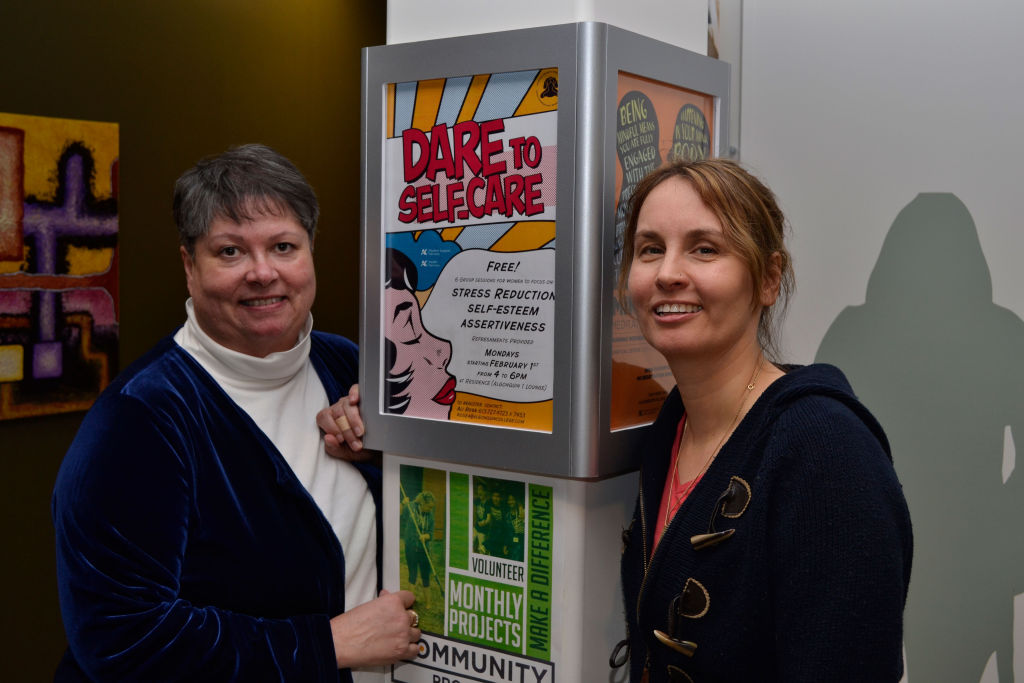
With the increasing awareness in society about the stigma surrounding mental health issues and how important it is to reach out and talk about them, do you feel comfortable daring to self-care about your own mental health and wellbeing?
Fortunately there’s a group for that right here on campus that can help answer that question. Dare to Self-Care is a six-week program which started on Feb. 1 that focuses on issues affecting female students every day and teaches them ways to help manage anxiety and stress as well as ways to help improve their confidence and achieve good mental health.
The program is run by Alison Rose, a learning strategist with the Centre for Students with Disabilities who is the main coordinator of the program, and Andrea Fox, a counsellor with Student Support Services who acts as co-facilitator.
Together the two facilitate group sessions that take place every Monday from 4:00-6:30 in the college’s residence building.
“Dare to Self-Care is a group that encourages women to take some time to meditate, to do things that bring them joy. We talk about ways to manage stress, manage emotions, we do some breathing exercises, work on assertiveness, talk about self-esteem and self-care,” Fox said of the program and of the activities that typically happen within the sessions.
The program idea was originally conceived by Rose, who ran the first Dare to Self-Care program last year. Being partly funded through Amethyst Women’s Addiction Centre as a health promotion facilitator, Rose felt that implementing a confidential women’s group at Algonquin College would be beneficial to female students as women often handle issues like addiction, stress and anxiety differently than men do and that there aren’t enough female-oriented support groups out there to help women deal with these mental health issues.
“Women often communicate differently than men, so when it’s just women, and when the sense of safety and trust is there, they tend to go more deeply into their feelings about their stress and how they manage it”, said Rose.
Since its debut in 2015, Dare to Self-Care has been a success among students and even though Amethyst wouldn’t be helping to fund it again next year, Fox said that there’s much talk of bringing the program back nonetheless, which she feels grateful for.
“We know that it’s something that people are interested in and they know that they really need to have some balance in their lives and that’s hard to do sometimes, or hard to know how do to sometimes,” Fox said.
Rose says that biggest gift of having a program like this at Algonquin is that it provides an opportunity for women to realize that they’re not alone in their stress and that as a group, they have many resources that they can share and support one another with.
“We have activities planned, but the way those activities go down is completely up to the students,” Rose said about how she and Fox run the session activity plans. “We always go to them first for the information—it’s not a top-down situation. So we go to them first with all their information and questions and then we add things that may help them.”
Although these group sessions are partly funded through Amethyst Women’s Addiction Centre, Rose has stated that the Dare to Self-Care programs are not addiction-focused and the goals of these programs are health promotion-based, created as a community outreach to help support female students build on their resourcefulness in order to help prevent future addictions.


